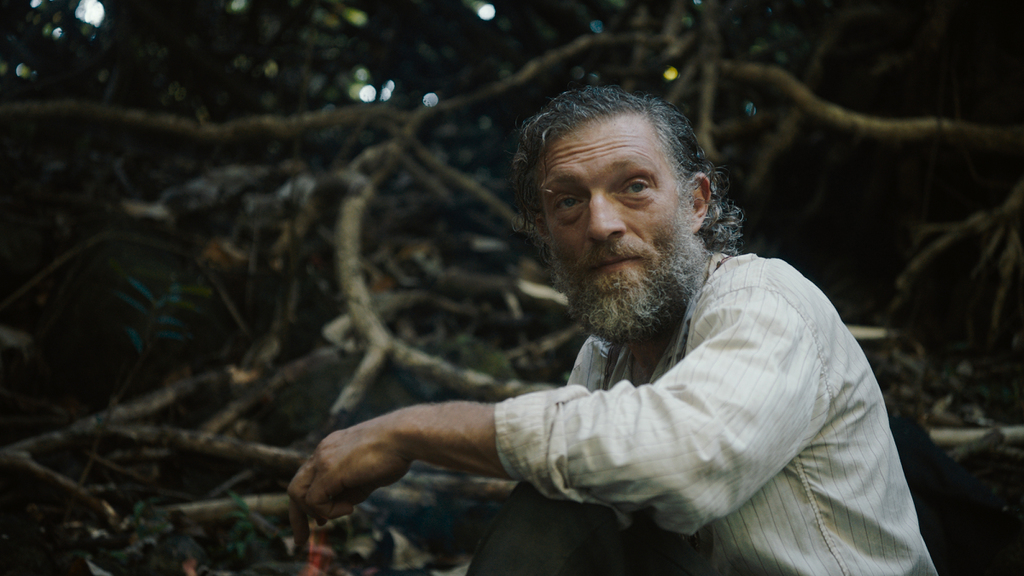Part of the French Film Festival UK 2017
Edouard Deluc directs Gauguin: Voyage to Tahiti, a focus on one specific period of the titular French post-Impressionist artist‘s life. After abandoning Paris, Paul Gauguin spent a six-year stretch in French Polynesia, where he painted some of his most famous works – many of which were only seriously appreciated posthumously. Although this seems like an ideal opportunity for insight into the artist and the influences of these major pieces, we are sadly left without having penetrated too deeply.
The problems – for both Gauguin and the audience – begin early in the film. In the space of ten minutes or so, the protagonist is portrayed as the familiar struggling artist earning nothing for his work – of which the audience sees absolutely nothing. His life only seems to deteriorate from here on in: his wife and children abandon him (and we never hear mention of them again in the film); he feels no connection to his artistic circle of friends; and he ultimately leaves for Tahiti (arriving without much of a hint at what must have a treacherous and enormous journey – ironic when considering the film’s subtitle) where he collapses into a diabetic coma. Despite all this, it’s difficult for us to feel much empathy for the character; all we know of him so far is misery, angst, and the suggestion that he is a neglectful father, with a complete absence of anything to root for.
For the bulk of the film, a mundane, downtrodden tone continues, even against the backdrop of beautiful Polynesia. Although the impressive setting is often captured in rich long shots, this never translates to emotional warmth. Gauguin finds a Polynesian wife (without much effort) and though the plot then loosely hangs on this, there isn’t much chemistry, dialogue or connection for us to feel for either. She becomes his muse, but only one brief scene hints at why; there’s not enough for us to cling to. Vincent Cassel commits to the role with intensity and grit and Tuheï Adams plays her part as wife Tahura gently and with magnetism, but nothing is at stake for the audience. We don’t have a reason to care what happens to them.
One exception comes towards the film’s climax as Tahura’s devotion to Gauguin strays and there are finally hints at tension as the artist lashes out, but even this never truly reaches a crescendo. Again, the audience is left unsatisfied and uninvolved. U
ltimately, Gauguin disappoints. What could have been an engaging exploration of an artist and his motivations during a fascinating period of his life (at least on paper) is delivered as a cool and sometimes monotonous plod through a pretty island. An opportunity missed.
